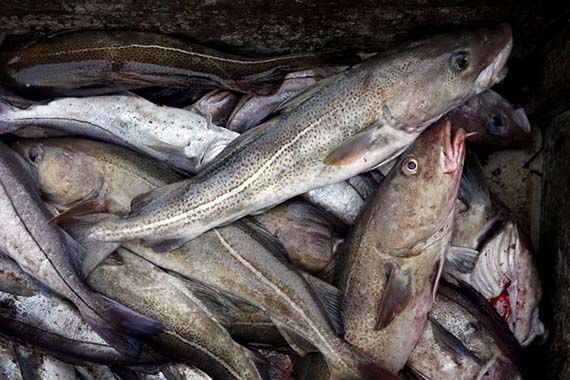Commissioner DeMarco’s review focused on nine fish, two clams and a sea turtle that the Committee on the Status of Endangered Wildlife had identified as vulnerable. (Photo: The Canadian Press)
Ottawa – The federal government has been very reluctant to list fish that have commercial value but still need to be protected as “endangered species,” concludes Canada’s Commissioner for Environment and Sustainable Development.
The scrutiny of Canada’s efforts to protect endangered aquatic species is among six new environmental reports presented Tuesday in the House of Commons by Commissioner Jerry DeMarco.
The Environment Commissioner has found that the Department for Fisheries and Oceans is very slow to act when the national committee responsible for assessing whether a species is vulnerable declares that a particular aquatic creature or plant is indeed at risk.
And when that assessment relates to a fish that has significant commercial value, the Department’s default decision seems to be not to list it as vulnerable.
This was particularly true for the Atlantic cod population in Newfoundland and Labrador.
Overfishing led to a moratorium on commercial cod fishing in Newfoundland in 1992. Since then, the Committee on the Status of Endangered Wildlife in Canada has twice classified this cod as “Vulnerable,” meaning it is in imminent danger of extinction.
Once this assessment is complete, Fisheries and Oceans Canada must review it and decide whether to list the species for special protection under the Species at Risk Act. This listing would prevent this species from being killed, harmed, harassed or captured.
The first assessment of Newfoundland cod was in 2003 and it took Fisheries and Oceans three years to verify the results. But in 2006, the federal department decided not to list it under the Species at Risk Act, allowing some inshore fishing and native harvesting to continue.
In 2010, the committee listed the Newfoundland cod as endangered for the second time. Today, 12 years later, at the time of the audit, Fisheries and Oceans had still not completed the review to determine what to do with this national committee assessment.
The commercial value weighs
Commissioner DeMarco’s review focused on nine fish, two clams and a sea turtle that the Committee on the Status of Endangered Wildlife had identified as vulnerable.
Five of the fish were marine species with significant commercial value; In those five cases, the ministry decided not to list the fish as an endangered species. In addition to Newfoundland cod, there is steelhead (Thompson River population), Okanagan Chinook salmon population, yellowmouth scorpionfish and Atlantic bluefin tuna.
Four other fish, two clams and the loggerhead turtle were found to have no significant commercial value; They have all been classified as “Vulnerable” by Fisheries and Oceans.
Commissioner DeMarco also found that the department was taking far too long to conduct its own studies. It notes that Fisheries and Oceans had not yet completed its review of half of the 230 aquatic species that the national committee had recommended for designation as “Vulnerable” since the Species at Risk Act came into force in 2004.
In addition, he found that the department had major gaps in knowledge about vulnerable species and insufficient staff to enforce conservation measures when they were introduced.
“There are several things that are having undesirable impacts on ecosystems and communities: a bias against protecting commercially valuable species under the Species at Risk Act, significant delays in listing species to be protected, lack of knowledge about species, and limited ability enforce the right to do so,” summarizes the Commissioner in a press release.
The commissioner’s fall reviews also focused on policies for managing low- and intermediate-risk radioactive waste, which accounts for 99.5% of all radioactive waste in Canada.
In this regard, Mr. DeMarco concludes that Natural Resources Canada, the Canadian Nuclear Safety Commission and Atomic Energy of Canada have done a good job in disposing of this waste.

Incurable food practitioner. Tv lover. Award-winning social media maven. Internet guru. Travel aficionado.





;Composite=(type=URL,url=https://images.radio-canada.ca/v1/assets/elements/16x9/outdated-content-2013.png),gravity=SouthEast,placement=Over,location=(0,0),scale=1)

